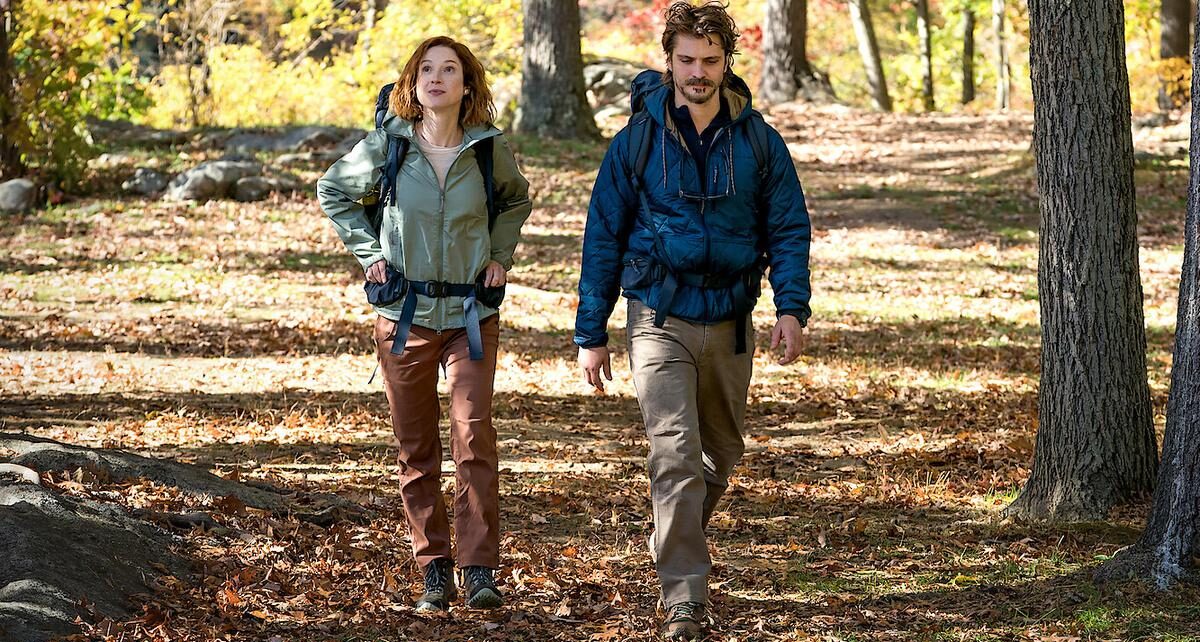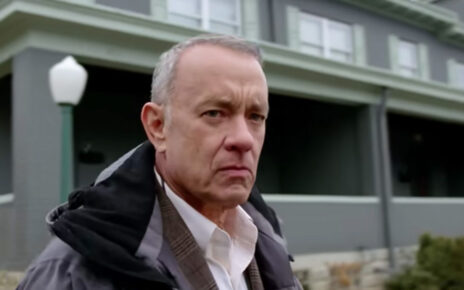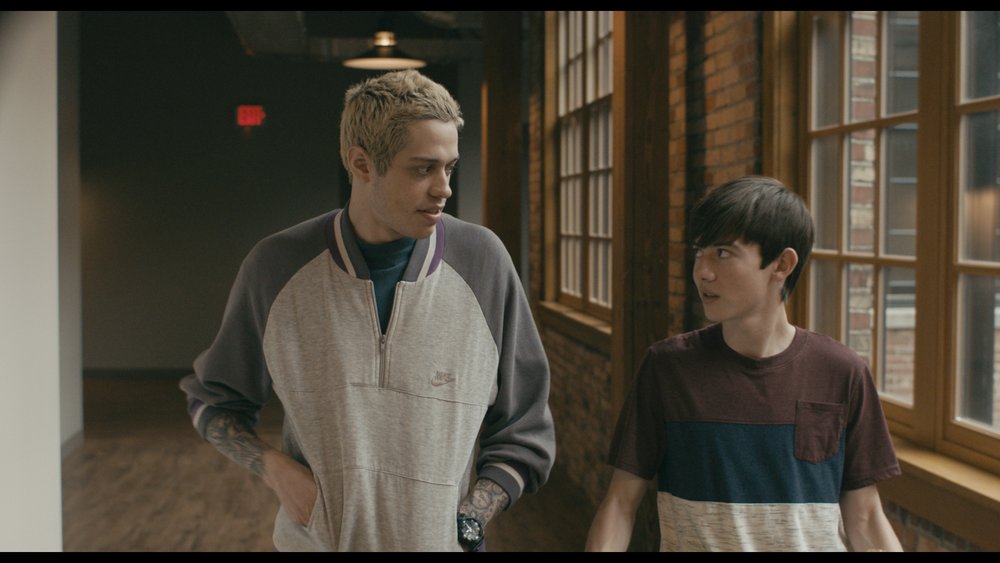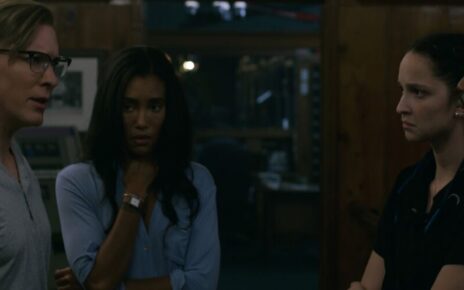Speaking of people with an inability to carry a film, Ellie Kemper. Let me temper on Kemper. While she is otherwise not unlikable, Ellie Kemper is utterly incapable of delivering a performance with any depth, and, hence, she really shouldn’t stray from comedy. But hey, don’t sweat it, Ellie, your partner in this film, Luke Grimes, is also incapable of real depth, so you had help. Lots and lots of help.
Happiness for Beginners is a Christmas film. The fact that Christmas is still months away (or was when the film was released) is irrelevant. The film is about finding that hopeless, unrealistic love from someone you’ve known for decades. Reality barely matters in a film like this, nor do salient details, like the fact that our heroine is aggressively unpleasant so often. All you need here is a completely ridiculous belief that the Christmas spirit will overcome reality. Does it matter that this is autumn? Not in the least.
Helen (Kemper) has a laundry list for what her upcoming hiking trip is supposed to accomplish. The list is unrealistic, of course, but that rarely stops folks in romcoms. A year removed from her divorce, she’s finally ready to move on – or so the screenplay would have us believe. She married an idiot; she knew he was an idiot the day she married him, and he did nothing to change her mind while they were married. Truth is, she was ready to move on before she got married, but why bother with details. This trip is about getting her shit together … which seems quite the contradiction when you consider that she’s an attractive single young homeowner with enough income and job security to go play in the woods for a few weeks. (For the uninitiated, Happiness for Beginners is a fantastic introduction to “white people problems.”)
It’s the fall and about ten people have signed up to hike 80 miles of Appalachian Trail at an ungodly slow pace. Hey, they’re beginners. Or, at least, maybe two of them are. This is a “Mixed Donuts” film where a deliberately random cross-section of people shows up to provide a diversity the film doesn’t otherwise believe in. For example: while the group as a whole represents several shades of color and age and philosophical outlook, our heroine is a young white woman, the guy whom she eventually fall for (Grimes) is a young white man, the villain is a young white man, the hiking expedition guide is a young white man, and the only other person of real importance (Helen’s brother) is also a young white man. Everybody else is given a distinct personality trait to exploit on camera if any of those diversity cops happen to arrive on the set.
Helen is a camping novice, yet is determined to make a go of it … without doing anything other than showing determination. She foregoes the recommended shoes, which creates blisters almost immediately; she fails to read the camping guideline material, and she’s forgetful to the point of passive-aggressive scorn about the guide’s instructions. All of that is irrelevant. Her brother’s best friend came along on the trip and Helen is equally determined to be mean to him; this is HER trip to become a phoenix, not his.
trip and Helen is equally determined to be mean to him; this is HER trip to become a phoenix, not his.
It is exhausting seeing a protagonist give a consistently unpleasant performance without drawing upon the real life things that would make one’s attitude unpleasant: blisters on an endless hike, for instance, the weight of a backpack, sleeping on the ground, eating hiking food and having the same take an intestinal toll, no bathing, no phone, no creature comforts, all of these could put one (understandably, in fact) in a bad mood, and yet Helen is consistently upbeat -for Lord knows what reason; she isn’t terribly popular in the group- until she’s put on the spot about anything she’s feeling, and then she is decidedly unpleasant.
(You see, the film exists so that Jake can finally melt that icy exterior. Geez pal, why bother?)
The cinematography in Happiness for Beginners is first rate. I don’t know if it was actually shot along Connecticut’s section of the Appalachian Trail, but the beauty of the outdoors made me want to visit. None of the characters, however, made me feel anything other than mumbleface. I’d say, “save this film for Christmas” but come Yule season, there will be seventeen films just like it, and most of them will be set in snow.
There once was a woman named Helen
Who decided to become a Magellan
She amassed up all her hate
And dispelled of that weight
I ain’t buyin’ what this movie is sellin’
Rated TV-14, 103 Minutes
Director: Vicky Wight
Writer: Vicky Wight, Katherine Center
Genre: Hallmark Christmas films for the fall
Type of being most likely to enjoy this film: Hopeless romantics; people who can ignore key details at will
Type of being least likely to enjoy this film: “Good Lord, why would anyone want to date this woman?”



